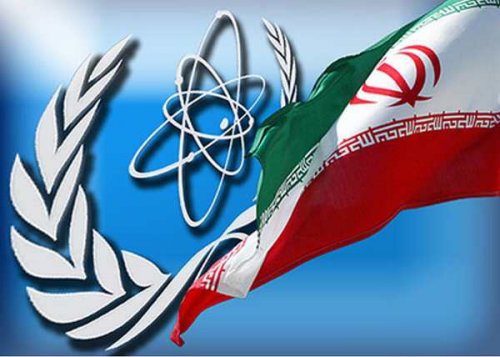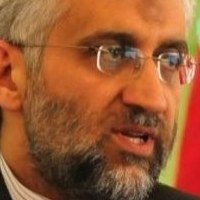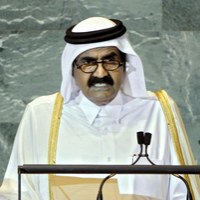![]()
Sun, March 06, 2011 | The Meir Amit Intelligence and Terrorism Information Center
Iran Shows Disinterest in New IAEA Report
The new report released last Friday by the IAEA about Iran’s nuclear program has not stirred much interest on Iranian media. The report said nothing new about the nuclear program, estimating once again that, based on new information the IAEA had received, the program may have military aspects as well.
Following the release of the report, Iran’s Foreign Minister Ali-Akbar Salehi said that the information allegedly indicating the military aspects of Iran’s nuclear program is completely unfounded. He noted that the IAEA must act in an independent fashion rather than in accordance with the positions of Western countries.
Iran’s IAEA representative Ali-Asghar Soltaniyeh commented on the report saying it was yet another confirmation that Iran’s nuclear program is for peaceful needs, and that the report reflects the IAEA monitoring of Iran’s nuclear program, including uranium enrichment (ISNA, February 26).
Some members of the Majles National Security and Foreign Policy Committee expressed a more critical stance towards the IAEA following the report’s release. Committee spokesman Kazem Jalali rejected the IAEA’s claims about having information that indicates the military aspects of the nuclear program, arguing that their aim was to divert world public opinion from the developments in the Middle East and the long-standing support of Western powers for dictatorships in the Arab world. In an interview to the Fararu website, Jalali said that Iran has no need of an atomic bomb or non-peaceful nuclear technology. He claimed that in the past eight years, the IAEA has conducted many inspections in Iran and had its full cooperation, and that it still was unable to find any proof that the program was designed for military needs. He accused the IAEA leaders of being motivated by politics instead of professional considerations. He said that there are two approaches within the IAEA: the juridical approach, based on which the agency could not prove that Iran’s nuclear activity is not peaceful, and the political approach, which prompts the agency to exert considerable efforts to question Iran’s intentions (Fararu, February 26).
Esma’il Kowsari, also a member of the Majles National Security and Foreign Policy Committee, similarly claimed that the IAEA’s claims about the supposedly military nature of the nuclear program are false. The IAEA reports are based on the demands of Western countries rather than on reality, Kowsari said. He noted that if the IAEA had documents to indicate any military aspects in the nuclear program, it would make them public by now (Fararu, February 27).
The new report released by the IAEA was not extensively commented on in Iran’s press, which continued to focus on the political developments in the Arab world this week. The conservative daily Keyhan commented on the IAEA report in an editorial which showed a disrespectful attitude towards the report and its significance. According to the daily, the release of the report indicates that the West has not understood the message Iran sought to deliver in the nuclear talks held last month in Istanbul. In the talks, Iran asked Western countries to recognize its rights, cooperate with it, and cease exerting pressure on it. Iran has proven that it is unwilling to yield to pressure and sanctions and change its nuclear policy, Keyhan claimed. The Americans assumed, however, that following the failure of the talks, they would be able to persuade other Western countries to step up sanctions against Iran. In practice, however, Western countries themselves have started questioning the effectiveness of the policy of sanctions and pressure against Iran. The only thing left for the Americans to do, therefore, is to adopt unilateral sanctions against Iran, and the Obama administration is well aware that such a move would be nothing more than a propaganda joke. According to Keyhan, the latest developments in the Middle East have only made Iran more significant for the West. In the future, Iran will be holding talks with the West from the position of a country that constitutes a single element able to influence regional developments. It is perfectly clear that, when it comes to dealing with Iran’s nuclear program or regional developments, U.S. intelligence assessments or IAEA reports are worthless (Keyhan, February 28).



 RSS
RSS














#Iran Shows Disinterest in New #IAEA Report | #nuclear #negotiations http://j.mp/icpJZz
RT @CrethiPlethi: #Iran Shows Disinterest in New #IAEA Report | #nuclear #negotiations http://j.mp/icpJZz